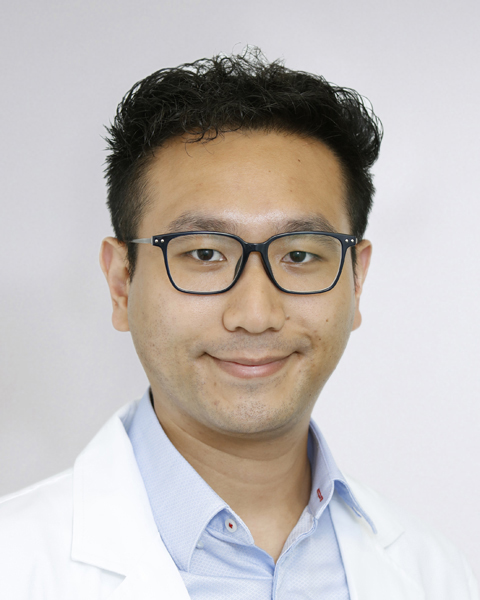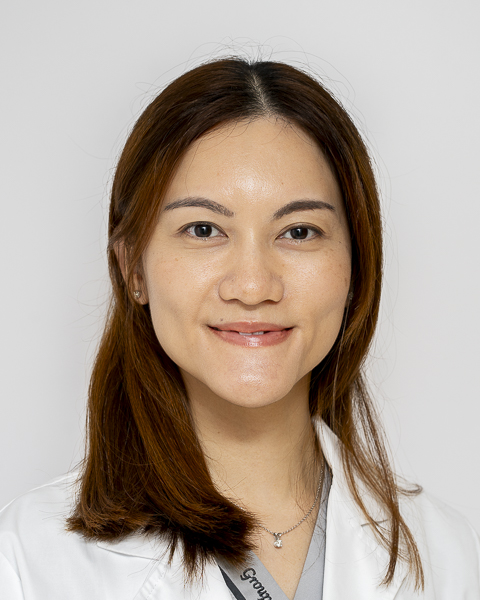| About Us [1] Our Services [2] Speech Therapists [3] Contact Us [4] Pamphlet [5] Price List [6] |
| Our Services |
| Our Speech Therapists can evaluate and manage communication (speech, language, voice, fluency) and swallowing and feeding disorders, which may result from various conditions. Communication Disorders Communication disorders can occur as a result of various medical conditions and their treatments, due to aging or may be developmental. Neurogenic Communication Disorders Neurogenic communication disorders result from damage to the brain, which may be caused by diseases such as stroke, Parkinson’s disease, brain tumour or head injury. A person experiencing a communication disorder may have problems with speaking, understanding what is being said, reading, and/or writing. They may be unable to express one’s needs or thoughts, may produce brief speech, slurred speech or speech that is difficult to understand. Treatment Treatment varies according to individual needs and the type of disorder present. Treatment may involve improving the strength and coordination of the speech muscles, re-learning how to produce sounds, words or sentences correctly, or in more severe cases, how to appropriately use gestures or communication devices to aid communication. Speech Disorders Related to Head and Neck Cancer (Post-surgery/ After Radiotherapy) People with head and neck cancers may have undergone surgery, radiotherapy or other treatments. Owing to changes to the head and neck structures or due to the late effects of radiotherapy (e.g. tissue hardening), problems with speech, as well as voice and swallowing, may arise. Treatment Pre-operative counselling is essential to prepare the individual for the potential changes in that may occur following treatment speech function, and the likely rehabilitation that will be needed after surgery and / or other treatments. After surgery, timely alaryngeal speech rehabilitation using devices such as electrolarynx or tracheo-oesophageal speech prosthesis, may be introduced and speech exercises may be delivered to optimise the individual’s speech intelligibility. Speech Therapy for People with Tracheostomy or Ventilator Tracheostomy tubes may be placed by a medical doctor for people who need assistance with breathing. A person with a tracheostomy tube may find it difficult to speak, or may be unable to speak at all. They may also have difficulties with swallowing. Treatment Speech Therapist can assess whether a speaking valve or other speech devices can be used for communication. Exercises to improve the coordination of breathing for speech may also be taught. Voice Disorders Voice problems may result from misuse of the voice or from an underlying medical problem. People who use their voice a lot are more prone to voice disorders. Common signs and symptoms of voice disorders may include having a hoarse or breathy voice, vocal fatigue, difficulties raising your voice or controlling the pitch of your voice. Treatment Voice therapy may consist of a variety of tasks designed to eliminate harmful vocal behaviours, shape healthy vocal behaviour, and assist vocal fold wound healing after surgery or injury. Treatment may include voice therapy alone, or voice therapy in conjunction with ENT management. Therefore, you are advised also to consult an ENT specialist for a detailed examination of the vocal cords and management plan. Speech and Language Disorders in Children When a child has difficulty speaking clearly, problems pronouncing particular sounds or words, problems following directions, or are unable to put words together into sentences, he/ she may have a speech and/or language delay or disorder. There may not be a definite cause to a speech or language disorder, however, some conditions that may influence speech and language development in children include cleft lip and/or palate, tongue tie, global developmental delay, intellectual impairment, autistic spectrum disorders, hearing impairment or children with a lack of facilitative language stimulation/ environment.. Treatment Speech Therapist will administer appropriate assessments to determine the need for therapy depending on the age and nature of the disorder identified. FluencyDisorders Fluency disorders affect the speed, rhythm and flow of speech. Fluency disorders can be developmental, beginning in childhood, or can occur later in life due to injury to the brain. Fluency disorders, especially those beginning in childhood, may adversely affect an individual’s self-esteem, educational, vocational, or social participation. A person with a fluency disorder may speak with part or whole word repetitions e.g. “h-h-how are you?” or “how how how are you?” , or sound prolongation e.g. “sss…sit down please” Treatment Various approaches may be used such as controlling the rate of speech, easy onset, relaxation techniques, and regulation of breathing. Swallowing and Feeding Disorders Adult Swallowing Disorders People with difficulties swallowing are at risk of poor nutrition, dehydration, pneumonia or suffocation. Swallowing disorders may result from a number of medical conditions. Some of these are:
Common signs and symptoms of swallowing disorders
Treatment After swallowing evaluation, Speech Therapist may recommend specific swallowing treatments. Treatment may be in the form of exercises, recommendations on optimal feeding positioning, swallowing strategies or modify food and liquid textures to allow for safer swallowing. The recommended treatment is based on the cause and presenting symptoms of the swallowing problem. Feeding and Swallowing Disorders in Children Feeding and swallowing problems may occur in infants and young children for various reasons. Causes of swallowing problems in children may be congenital (e.g. malformations present at birth such as cleft lips and palate), due to prematurity or neurological damage. Feeding and swallowing problems may also occur when the oral muscles are weak or there is abnormal sensation (oral hyper- or hyposensitivity). Children with feeding and swallowing problems are at risk of poor nutrition, dehydration and aspiration (food or liquid entering the airway). Common signs and symptoms of feeding and swallowing disorder
Treatment Treatment recommended by Speech Therapist generally aims to increase the strength of the oral muscles, improve chewing, coordinate the suck-swallow-breath pattern or normalise oral sensitivity. Speech Therapist may introduce safe textures and advise on postural changes or special feeding bottles and aids. Treatment is based on the cause and presenting symptoms of the swallowing problem. Orofacial Myofunctional Disorders Orofacial myofunctional disorders (OMDs) affect the growth, development and functions of orofacial musculature. OMDs can co-occur with speech or swallowing disorders. Common signs and symptoms of OMDs
Treatment Individuals with OMDs may benefit from orofacial myofunctional therapy. Depending on individual needs, other oromotor, speech or feeding therapy may be incorporated. Our Speech Therapists trained in orofacial myology may collaborate with other medical professionals to provide holistic management of OMDs. Videofluoroscopic Study of Swallowing (VFSS) VFSS is an objective assessment used to assess swallowing function. VFSS is conducted under x-ray and is typically done in conjunction with a radiologist. During VFSS, the individual with the swallowing problem is given food and liquid mixed or coated with barium, so that it can be seen under x-ray. The swallowing process is seen and the cause of the problem, presence or absence of aspiration, and whether possible compensatory techniques can be used to improve swallowing may be explored during the procedure. Based on the VFSS findings, Speech Therapist may discuss treatment and recommendations that may aid safe swallowing. Fiberoptic Endoscopic Evaluation of Swallowing (FEES) FEES is an objective assessment used to assess swallowing. The assessment uses endoscopy and is typically conducted with a specialist doctor. A flexible endoscope is inserted through the nose while food and liquids are swallowed. This is so that the swallowing process can be visualised. Food and liquid given during the procedure may be of varying textures and food coloring may be added to improve visibility. Finding the cause of the swallowing problem, assessing the presence or absence of aspiration, and identifying possible compensatory techniques are the goals of the procedure. |
| Contact Us | |
| For enquiries and appointments, please contact us at: | |
| Speech Therapy Service | |
| Address: | 5/F, Li Shu Pui Block Hong Kong Sanatorium & Hospital 2 Village Road, Happy Valley, Hong Kong |
| Tel: | 2835 7156 |
| Fax: | 2892 7568 |
| Email: | pmrehab@hksh-hospital.com [7] |
| Service Hours | |
| Monday to Friday: | 9:00am - 5:00pm |
| Saturday: | 9:00am - 1:00pm |
| Closed on Sundays and Public Holidays | |




